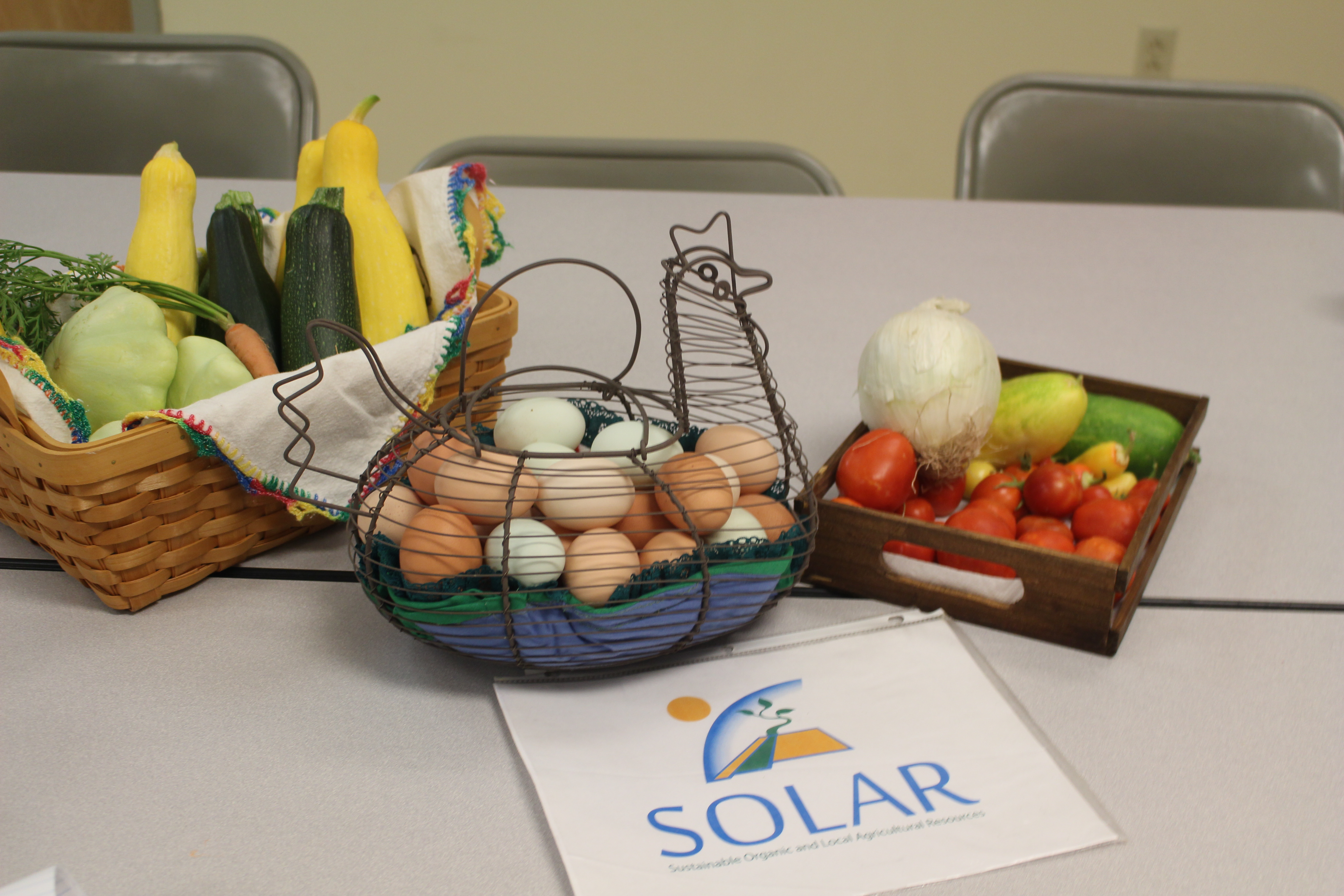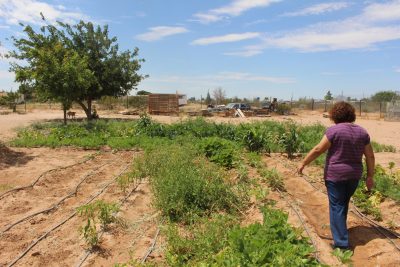SOLAR
A coalition of organic family farms that seeks food security, social justice, and food sovereigntyParticipants
- 25 farming women of Chaparral and their families
Desired Outcomes
SOLAR intends to pass on sustainable food production methods to other communities in need. Their childcare center hopes to help families of the local communities focus on their home gardens and produce. The children can also be involved in the food-growing and picking process in a way that is both fun and useful.
How SOLAR builds relationships
SOLAR strengthens the capacity of immigrant farm workers and refugees, as well as advances sustainable farming and food systems. SOLAR also locally connects families within rural Chaparral through a common interest in growing sustainable organic food and making healthy eating a habit.
Costs
- Adequate funding for labeling and water supply
- Funds for the chicken feed and the fertilizer for the garden
Time resources
- 4 – 6 hour training workshop for farming families, offered once per week.
- 6 weeks for new “layers” (egg-bearing chickens) to produce
- Farm cycle for vegetables varies depending on the good produced.
Other resources
Identifying and implementing strategies increases the efficiency of the farm’s water usage, given the New Mexico drought. One way to do so is to line irrigation ditches with concrete so that the water will not percolate or evaporate.
Direct Partners
- National Immigrant Farming Initiative (NIFI)
- Colonias Development Council (CDC)
Other Sponsors
- Heifer International
- American Friends Service Committee (AFSC)
- New Mexico State University (NMSU)
- $40,000 grant from USDA Risk Management Agency
- $10,000 grant in 2014 and $15,000 grant in 2015 from Jesse Smith Noyes Foundation (applied through NIFI)

Our Story: "We are inviting people to be mentors, to recognize skills and knowledge they already have. People need credit, sometimes that’s all."
Immigrant women and their families in the rural town of Chaparral, New Mexico, created the cooperative farm, Sustainable Organic Local Agricultural Resource (SOLAR), to produce local, sustainable organic food for their community. Its full name is “SOLAR Agricultura Orgánica de Chaparral,” otherwise known as “El Solar” among the locals of Chaparral. SOLAR teaches families living in the Chaparral colonia organic farming techniques to apply in their home gardens. The Delores Wright Community Resource Center in Chaparral provides SOLAR with a meeting place. SOLAR also has a garden used to train new farmers, a childcare center, and a greenhouse.
SOLAR owes its creation and much of its continued development to its collaboration with the National Immigrant Farming Initiative (NIFI) and its current executive director, Rigoberto Delgado. NIFI, an organization founded in 2000 by Heifer International, provides immigrant farmers training and networking opportunities that encourages them to collaborate with other farmers and share best practices. Around the year 2000, Rigoberto Delgado and Heifer International’s other regional managers recognized the potential for the growing foreign-born and immigrant populations from Africa, Asia, and Latin America to become the future replacements of the previous long-standing farmer communities. In 2008, Don Bustos, an employee of the American Friends Service Committee (AFSC), prompted Rigoberto Delgado to act upon the need for more sustainable agriculture and increased food sovereignty in southern New Mexico. Through a series of meetings with local farmers, Rigoberto and Don originally formed Chaparral Agriculture and Livestock Association (CALA), which addressed the need for an accessible farmer’s market in the rural area surrounding Chaparral, NM. Because of tensions between Anglo and Latino farmers, CALA split along ethnic lines. SOLAR emerged with a largely Latino immigrant membership to continue with the NIFI-led organic farming project.
It’s up to people to tell us what they want. Once they know that, we can decide the process. They can decide what they want for themselves.
Benefits
SOLAR fights hunger and poverty. SOLAR farmers grow fresh organic produce for the families of Chaparral, making healthy and sustainable food available for all members of the community. The childcare center near the Colonias Development Center (CDC) training garden also provides a daily source of help to the farmers and their families.
Challenges
Tensions between Anglo farmers and Latino farmers presented an early challenges to the SOLAR farmers. Chaparral Agriculture and Livestock Association (CALA), the farming group initially created to address the need for sustainable food in Chaparral, split along ethnic lines. Even today, after the creation of SOLAR, the two groups remain separate, not sharing resources or facilities. Farmers find their ordinary activities are under surveillance because their farms are close to a militarized border.
Things to Remember
- Listen to the people of the community. They should express their own needs and expectations. It is essential for each farm group to foster a sense of ownership, belonging and voice.
- Build partnerships with other organizations that could lead to collaborative initiatives and sharing of resources in order to better benefit all involved.
- Network in order to build social capital through structured partnerships. Local networking, specifically, can help to share resources and exchange ideas.
